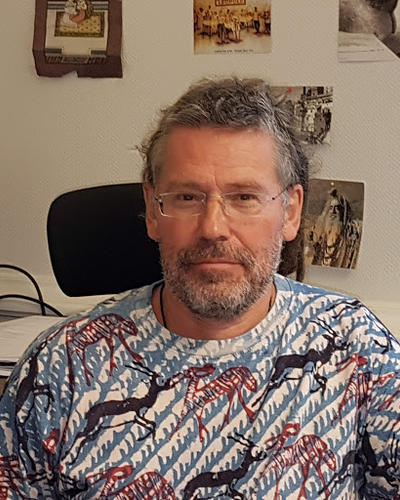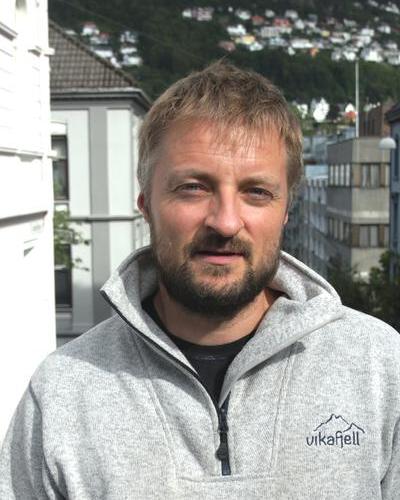Unmodern philosophies past and present: (Re)reading Latour, Dewey, de Castro and Tsing
In this PhD course, we take a fresh look at Latour’s book "We Have Never Been Modern" (1993) and trace the developments of some its central themes in his more recent work.

Main content
NB: The course is full.
About the course
Bruno Latour’s We Have Never Been Modern (1993) has ever since its publication engaged scholars way beyond the circles of science and technology studies. In the book, Latour takes issue with the strict division we Westerners have maintained between the natural and the social world through what he calls “the Modern Constitution.”
One of his aims in the book is to bring to the fore the extent to which human/non-human hybrids populate not only laboratories but our social and political world, and he wants to make the case that hybrids even connect and sustain our collective existence. Since human/non-human hybrids have gone under the radar of disciplines dominated by an ontological dichotomy between society and nature, Latour’s book has arguably provided us with means for conceiving ecological co-existence with non-humans and for reconceiving conditions for public and political action.
In this course we take a fresh look at Latour’s book and trace the developments of some its central themes in his more recent work. One aim will be to trace and discuss the evolution of Latour’s thinking about the Modern Constitution and politics, in works such as Politics of Nature (2004) and An Inquiry into the Modes of Existence (2013).
Included in this discussion will be the question of the limits of hybridity (of actors and networks), and possible connections between hybridization and neoliberalisation of nature. Following this we ask whether some form of dualism is not also required for critical thinking about the politics of nature.
Furthermore, given Latour’s many references to sources of inspiration outside of science and technology studies, we will explore two sets of sources.
Firstly, in Politics of Nature and Reassembling the Social (2005) Latour makes repeated references to John Dewey’s notion of the public in The Public and its Problems (1927). We take this as an opportunity to explore aspects of Dewey’s process ontology: how does it take account of relationships between humans and non-humans evolving from applications of science and technology? In what ways does it conceive of relationships between humans and non-humans as a basis for the public?
Secondly, noting that Latour in We Have Never Been Modern draws on the work of anthropologist Philippe Descola, we turn to more recent discussions in anthropology about antropocentrism. In particular we consider some of the contributions of Eduardo Viveiros de Castro and Anna Tsing, and the way they present possible alternatives of thinking beyond the distinctions of the Modern Constitution.
In this context, we will also discuss Foucault’s classical work The Order of Things (1966), and whether it may serve to open radical different ways of imagining important fields of knowledge.
Program
Tuesday October 13th
09:00–09:10: Welcome. The aims and rationales of the course.
09:10–09:30: All participants share their expectations and what their particular interests are.
09:30–10:15: Reading Bruno Latour’s We Have Never Been Modern
10:15–11:00: Reading Bruno Latour’s We Have Never Been Modern (and transition to Latour’s later work)
11:15–12:00 Group work/presentations
12:00–13:00: Lunch
13:00–14:00: Neoliberalisation of Nature and hybridization: can Latour keep up?
14:15–15:00: John Dewey: his process ontology and concept of the public.
15:15–16:15: John Dewey: his process ontology and concept of the public.
16:15–16:45: Discussion & summing up
Wednesday October 14th
09:00–10:00: Michel Foucault and Eduardo Viveiros de Castro
10:15–11:00: Michel Foucault and Eduardo Viveiros de Castro
11:15–12:00: Group work/presentations
12:00–13:00: Lunch
13:00–15:00: Anna Tsing: The Mushroom at the End of the World
15:15–16:00 Summing up
Accreditation and tasks
Preparation (reading course literature), active participation and a presentation (15 minutes) give 3 ECTS. In their presentations the course participants are expected to use selected parts of the course literature in discussing a topic of relevance for their ph.d.-projects.
Core reading
Canguilhem, George (1994): ‘The death of man, or exhaustion of the cogito?’, in Gary Gutting (ed.) The Cambridge Companion to Foucault. Cambridge: Cambridge University Press: pp. 71–91. (20 p.)
Dewey, John (2012 [1927]) Chapter 1 and 2 in The Public and Its Problems: An Essay in Political Inquiry, edited by Melvin L. Rogers, University Park: Pennsylvania State University: pp. 41–80 (39 p.)
Dewey, John (1948) “Common Sense and Science: Their Respective Frames of Reference”, The Journal of Philosophy: 45(8): pp. 197–208. (11 p.)
Latour, Bruno (1993) We Have Never Been Modern. Cambridge MA, Harvard University Press (145 p.)
Pellizzoni, Luigi (2011) ‘Governing through disorder: Neoliberal environmental governance and social theory’, Global Environmental Change 21: pp. 795–803. (8 p.)
Tsing, Anna (2015) Chapter 4 ("Working the Edge") in The Mushroom at the End of the World. On the possibility of life in capitalist ruins. Princeton: Princeton University Press: pp. 61–70. (10 p)
Viveiros de Castro, Eduardo (2015) Chapters 1 and 2 in The Relative Native: Essays on Indigenous Conceptual Worlds. Chicago: Hau Books: pp. 3–37, pp. 39–54 (49 p.).
Total: 282 pages.
Recommended reading
Harman, Graham (2009) Chapters 1–4 of Prince of Networks: Bruno Latour and Metaphysics. Melbourne: re.press: pp. 10–95.
Foucault, Michel (2002 [1970]) The Order of Things: An archaeology of the human sciences. London: Routledge.
Marres, Noortje (2010) “Front-staging NonHumans: Publicity as a Constraint on the Political Activity of the Things”, in B. Brain and S. J. Whatmore (eds) Political Matter: Technoscience, Democracy, and Public Life. Minneapolis: University of Minnesota Press: pp. 177–209.
Rogers, Melvin L. (2012) “Introduction: Revisiting The Public and Its Problems”, in John Dewey (2012 [1927]) The Public and Its Problems: An Essay in Political Inquiry, edited by Melvin L. Rogers, University Park: Pennsylvania State University: pp. 1–29.



